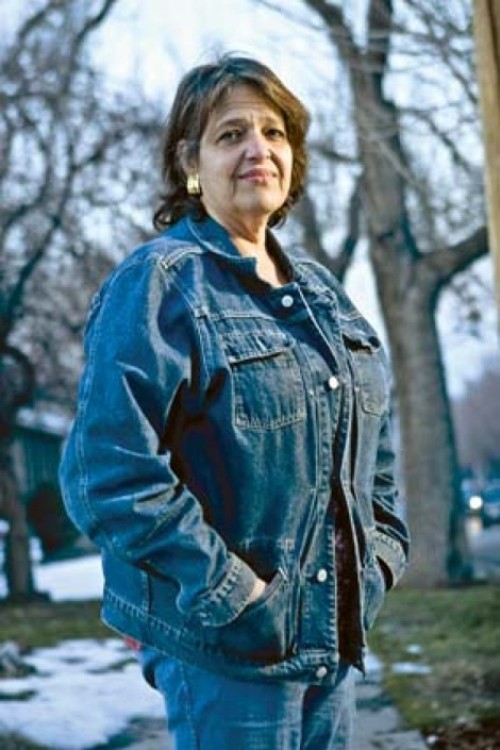News | The Race Card: A white woman challenges state discrimination investigators with claim of black prejudice.
By Eric S. Peterson @ericspetersonCyphers tried to work things out with her company’s human-resources department but when communication failed there, she says she was wrongfully terminated on Aug. 18, 2008. Taking her case of discrimination to the state, Cyphers says the Utah Antidiscrimination and Labor Division gave her the cold shoulder about her complaint. Cyphers says she was told she “didn’t have a leg to stand on” with her discrimination complaint. Cyphers believes that’s because she’s white.
nThe question of whether or not a Caucasian woman can allege racial discrimination when she does not belong to the race referred to in the alleged discrimination is a legal head-scratcher, but it is still one that Cyphers’ attorney, Russ Monahan, believes shouldn’t be used to discourage potential discrimination victims from making a complaint. But with the UALD taking hundreds of complaints and thousands of phone calls a year, Monahan says the department is too overwhelmed to effectively help root out discrimination in the workplace and ultimately ends up tacitly discouraging complaints from ever being made.
nCyphers never imagined it would come to hiring lawyers. She complained to her company’s human-resources department—which she alleges treated her with skepticism for even bringing the complaint. She says that Mentoring of America, a real-estate investing guidance company, failed to address the initial complaint and afterwards, she says, the aggravation went unchecked for roughly two months before she was fired in August of 2008.
n“My supervisor was stalking me,” Cyphers says. “They wrote him up, and they fired me.”
nMentoring of America’s attorney, on behalf of the company, declined to comment for this story, citing confidentiality rules.
nCyphers decided enough was enough. “I was so pissed that this was happening in 2009, and we just elected a black president!” Cyphers says. “You can’t get away with [this kind of discrimination].” Cyphers initially sought Jesse Jackson’s Rainbow Coalition for legal help before ultimately hiring her own lawyer from Salt Lake City. Prior to hiring counsel, Cyphers had taken her complaint to the UALD and was told her claim of discrimination was illegitimate.
n“According to the state labor board, there’s a wrong way and a right way to call somebody a ‘nigger’ in this state,” Cyphers says. “That’s when I flew off the handle.”
nHeather Morrison, director of the Utah Antidiscrimination and Labor Division wouldn’t comment on any specific case but denies that her department turns away complaints. “We always bring the claim in,” Morrison says. “Even if we don’t have jurisdiction, and they insist on filing, we’ll take the claim.” Morrison also disagrees with the characterization that a claim like Cyphers’ would be discouraged. “You wouldn’t have a straight discrimination claim, but perhaps harassment,” Morrison says.
n“I think harassment is bootstrapped to discrimination,” Cyphers’ attorney Russ Monahan says. “I consider it a subset of discrimination.” For Monahan, dismissing the discrimination claim is too hasty a recommendation. “They’re using a racially derogatory word to demean someone. It doesn’t mean someone has to belong to that race, so I think there is a legitimate question as to whether or not it was discrimination.”
nMonahan blames the fact that his client’s claim was discouraged on the UALD being underfunded and understaffed. Morrison does note she has a small staff—six employees who handle an average of 700 official and roughly 4,000 informal complaints a year. Monahan doesn’t necessarily blame the UALD but does see its lack of funding as affecting its decisions on how it handles cases. Noting backlogged investigations that take up to two years to complete, Monahan says, “The state passively discourages people from bringing complaints, or they will tell them to drop it.”
nIn the meantime, Cyphers finds herself as perhaps an unlikely civil-rights case. “All of these people who go to complain are turned away. That’s bull. You do have rights! If I gotta be the one to speak out, I’ll do it, I guess.” tttt
More by Eric S. Peterson
-
The Secret Sauce
How Utah lawmakers disclose—or don't disclose—conflicts of interest.
- Feb 14, 2024
-
Police departments in Salt Lake County spent almost $20 million on civil rights complaints in the past decade
The Co$t of Mi$conduct
- Oct 18, 2023
-
Women decry harassment and toxic culture at St. George auto dealership
Men at Work
- Oct 11, 2023
- More »
Latest in News
Readers also liked…
-
Raise a glass for E.L.T Harrison, architect of the Beerhive building on Main
Small Lake City
- Oct 11, 2023





